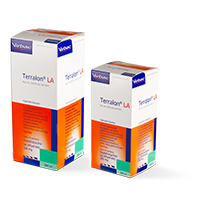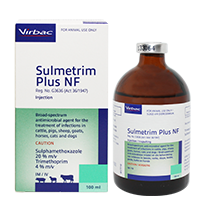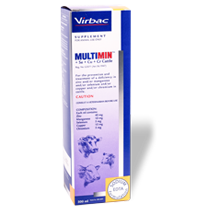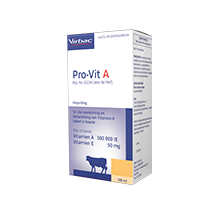
Overview of Pneumonia in Cattle
In the cold months of the year, livestock producers face major challenges. Keeping your livestock warm, comfortable, well-fed and healthy requires planning and forethought. Pneumonia, in particular, occurs precisely in the months.
In the transition months, such as autumn to winter and winter to spring, an increase in pneumonia is seen, but it also occurs throughout the year in South Africa. If the day and night temperature starts to differ by more than 10 to >20 degrees Celsius, the risk of pneumonia is greater.
When the first case of pneumonia occurs under field conditions on a farm or area, monitoring for sick animals must be intensified because this is an indication that the environmental conditions are now favorable for the occurrence of disease.
There are factors that suppress the animal's ability to resist the development of disease. These include stress, as it reduces the animal's normal white blood cell function; nutritional deficiencies, especially protein, vitamin and mineral deficiencies; dusty and cold conditions.
As it dries and gets colder, there is more dust that can irritate the mucous membranes and affect their functioning. The mucous membranes must keep disease-causing organisms out of the lungs. Mucous membrane health is therefore cardinal to keep the respiratory system disease-free.
Prevention and treatment
Vitamin A supplementation in the dry months, when green grass is not abundant, is important. New studies have indicated that Vitamin A must even be supplemented to ensure good absorption, regardless of the green grass and beta-carotene present. Vitamin A keeps mucous membranes healthy.
Zinc and selenium play a critical role in the functioning of the immune system. Make sure your animals don't have a shortage of these elements. Use products such as those available in the Multimin or Optilumen series or similar to supplement deficiencies.
Vaccination with an effective vaccine that contains the inactivated toxin (leukotoxin) secreted by the main bacteria is important. The leukotoxin suppresses the immune system and therefore resistance to the disease, because it destroys the white blood cells. This causes inflammation which causes most lung damage.
Give vaccinations on time, at the beginning of winter so that the immune system of the animal can be reactivated so that there are high levels of antibodies circulating in the blood.
Vaccination cannot completely prevent the disease, but it makes a big contribution to increasing resistance and limiting lung damage.
There are several grafts available. Discuss with your vet which product will be best for your herd. During a post-mortem examination, your herd vet can send samples to a laboratory to use the correct vaccine and antibiotic.
Early treatment with an antibiotic is critical. Therefore, sick animals must be identified in time. Look out for early signs of disease such as drooping ears and heads, animals that move more slowly and do not eat. Take these animals' temperature and if there is a febrile reaction, treatment is essential.
The choice of antibiotic is important. There are antibiotics available over the counter such as tetracyclines (Terralon LA, (G2676, Act 36/1947)) en sulfonamide (Sulmetrim Plus, (G3636, Act 36/1947)). These drugs can suppress the growth of the bacteria.
It may be necessary to use an antibiotic that is only available on prescription from your vet. So contact your vet as soon as you suspect pneumonia in your herd.
Anti-inflammatory drugs can also be used and will be prescribed by your vet to reduce fever and inflammation. After administration, sick animals recover faster and lung damage is reduced.
Pneumonia is a complex disease. The correct management of predisposing factors is important, but so is the use of vaccines because they play a major role in increasing the animal's specific resistance to the disease. Early observation of disease signs and consultation with your herd veterinarian to put together a suitable treatment plan will ensure that your herd receives the correct treatment in time.
60092307HF




